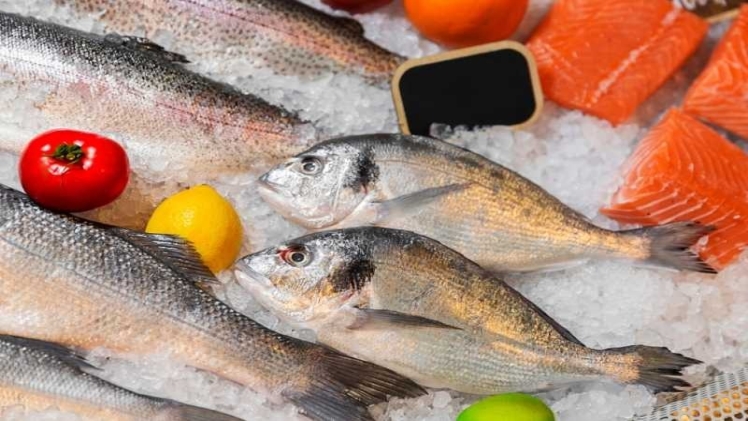Frozen fish can be more nutritious than fresh fish, not to mention cheaper, more plentiful, and easier to obtain. Because fresh fish is fished hundreds or even thousands of kilometres from where it is dealt, it is frozen before arriving at your local market. However, because whole fresh fish does not travel well, the food business has devised a system that permits individual fillets to be frozen and delivered within hours of being caught. Click and verify this link https://ishavet.nu/ to know the details for buying frozen fish.
Concerning About Frozen fish
Frozen fish samples have higher levels of omega-3 fatty acids, which are crucial nutrients that support heart health and are proven to lower inflammation in the body, among other things. Furthermore, because many types of fish are heavy in mercury and other toxins, opting for a frozen variety may reduce exposure to those chemicals.
There are numerous other reasons why you should buy more frozen fish, including:
Frozen Fish Is Just As Fit As New Fish
One common misconception regarding frozen fish is that it is less healthy than fresh fish. However, raw fish, particularly those destined for export, are flash-frozen commercially. It ensures that the fish’s freshness and nutrients are preserved, including all critical nutrients like omega-3 fatty acids, riboflavin, and vitamin D. Freezing fish can also aid in the elimination of parasites and dangerous microorganisms.
Buying Frozen Fish Will Save You More Money
Buying fresh fish can be expensive, and one of the main reasons is the effort required to ensure fresh fish. Fast transportation is costly, which is echoed in the prices of fresh raw fish. Another advantage of frozen fish is that it has a significantly longer shelf life. Buying fish off-season raises the cash owing to a lack of supply, but you can nearly always acquire it for the same price with longer-lasting frozen fish.
Beneficial to your health
Food items are usually superior to fresh meals since they can be harvested at their peak and instantly frozen, conserving nutrients. If you don’t have time to cook from scratch every day, frozen dinners can be a healthier option than ready-to-eat or fast-food options.
The nutritional content of frozen food
Yes, in general, freezing protects nutrients. That’s not to say freezing is the best approach to maintain nutrients in general, but it’s far superior to other methods of storing fish after they’ve been caught. Fresh fish is in protein and low in calories, making it an excellent source of omega-3 fatty acids. However, fresh fish does not survive long, people choose frozen fish.
Though not as nutritious as fresh fish, frozen fish can maintain a significant amount of its nutritional content if handled appropriately. Fish is a tasty and nutritious complement to any diet. It has a lot of protein and omega-3 fatty acids, which help lower blood pressure and triglycerides, prevent heart disease and diabetes, enhance the immune system, and even improve mood.
It is available in a variety of flavours
Frozen fish comes in a wide range of flavours, from cod and haddock to salmon and mackerel. Frozen fish is frequently fresher than fresh fish since it is frozen immediately after being caught and at its peak of freshness. With this quick technique, the taste, texture, and nutritional content of frozen fish are all kept at their best.
With Frozen Fish, You Can Enjoy Your Favourites All Year Long.
Seasonal foods aren’t just fruits and vegetables. Fish have harvesting seasons as well, especially when taken at sea. While eating fresh fish during harvest season may be less expensive due to the abundance, it does not last long. You can keep flash-frozen fish in your freezer for as long. And, while its quality degrades over time, it may help to prepare fresh food for up to a year.
Economic challenges are managed by flash-frozen seafood.
Flash-frozen seafood tackles some of the economic issues of domestic small-scale fishers, including seasonal volume swings, distribution costs, and matched supply and demand, resulting in significantly less waste. Small-scale fishermen can engage in and build markets for underutilised species thanks to freezing, which increases resource utilisation without increasing fishing intensity. Furthermore, freezing protects small-boat fishermen’s markets from seasonal flooding.
Using flash-frozen fish also has environmental benefits.
A product-driven a reasonable distance to the market has a minor environmental impact. Most seafood purchasers live a significant distance from where they catch. Furthermore, the seafood bought by customers is never frozen and is transported by air, the world’s most carbon-intensive means of transportation. Frozen seafood can travel thousands of miles by container ship, train, or truck, all of which have a significantly lower carbon footprint.
Beneficial to your wallet
As many families struggle to make ends meet, cutting back on food prices is an excellent place to start. When items are in season or on sale, freezing them is a way to stock up on larger quantities. As a result, you can benefit from cheaper seasonal rates all year.

